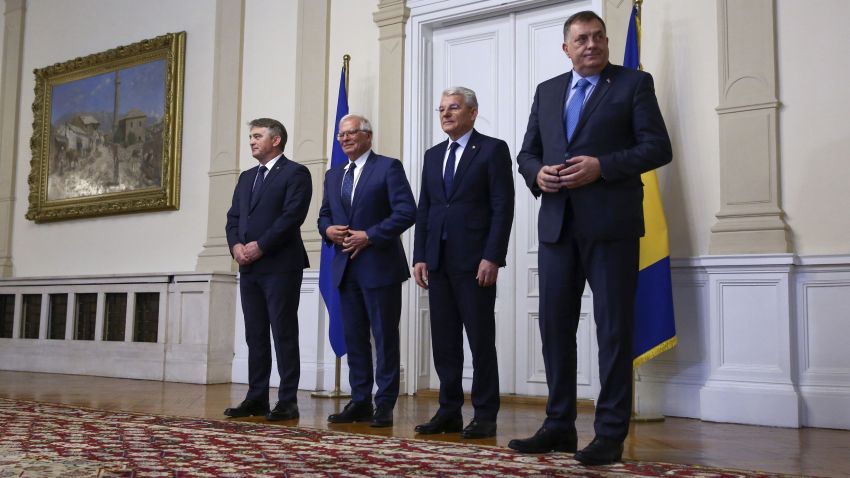The devastation caused by the collapse of Yugoslavia in the 1990s was a defining experience for European leaders and a huge influence on the outlook of the generation of policymakers that would govern the European Union in the following decades. Before the attacks of Sept. 11, 2001, and the invasion of Iraq two years later, the core security challenges absorbing the EU and NATO involved the wars in the successor states of Yugoslavia, along with the stabilization of post-communist states in Central and Eastern Europe.
The proxy ethnic Serb quasi-states fighting the forces of the Croatian and Bosnian governments in that conflict’s various iterations were backed with arms, funding and personnel appropriated from the former Yugoslav army by the Serb-nationalist regime in Belgrade under Slobodan Milosevic. In 1993, clashes over control of territory and resources also led to hostilities between ethnic Croat and Bosniak militias that were also fighting against Bosnian Serb militias. These battles were punctuated by atrocities that culminated with the genocidal massacre of 8,000 Bosniak men and boys by Bosnian Serb militias in July 1995.
In the wake of such war crimes and the instability they generated, the U.S. and European NATO states intervened decisively to end the war. This more or less open support for Croatia enabled its military to reconquer all the territory that had been under the control of Croatian Serb separatists. By early September 1995, a joint Bosniak and Croat offensive backed by NATO airpower forced Serb militias to abandon the siege of Sarajevo and led to talks at a U.S. airbase in Dayton, Ohio, that ended with a peace settlement whose basic outlines still shape the politics of the region.

